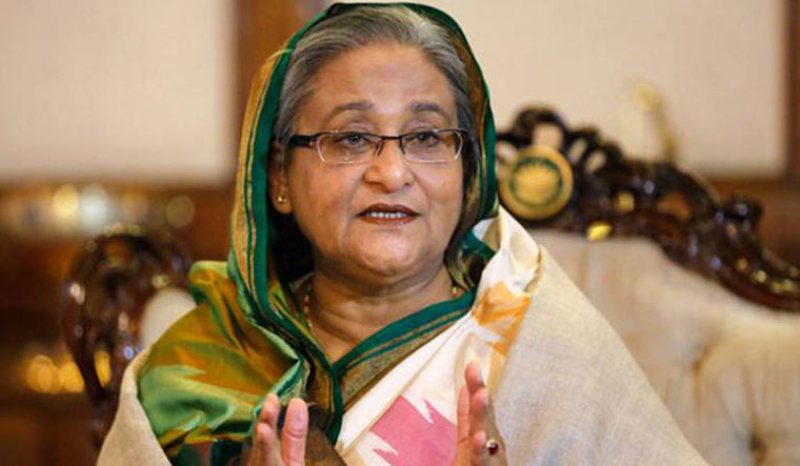After days of speculation, misinformation, and disinformation by Awami League cyber warriors that exiled leader Sheikh Hasina has left India and moved to the Gulf States, the name of the United Arab Emirates has cropped up as the final destination as a third country.
One Bangladesh TV channel, quoting reliable sources, reported that ousted Bangladesh leader Hasina had received a travel document from the Indian government to enter Abu Dhabi.
The rumours have been binned by the Ministry of External Affairs spokesman Randhir Jaiswal in response to questions in New Delhi last Thursday who said “Hasina still in India.”
He recalled his earlier statement that Hasina had come to India at “short notice for safety reasons” and said, “She continues to be.”
But he parried questions on the recent development of Bangladesh International Crimes Tribunal (ICT) on the issuance of a warrant of arrest against the former Prime Minister, who has been held responsible for deaths and maimed thousands of students and protesters during 36 days of deadly Monsoon Revolution.
Ministry of External Affairs spokesperson declined to comment on the ICT arrest warrant but said that his government has seen reports about the International Crimes Tribunal (ICT) in Bangladesh issuing an arrest warrant against former Prime Minister Sheikh Hasina in connection with the alleged crimes against humanity committed during the July-August uprising.
An Indian journalist, who is a member of the Indian National Security Council and a privy to the Hasina issue, said that she pleaded to Ajit Doval, the National Security Adviser to the Indian government, to grant her permission to stay with her daughter Saima Wazed (Putul), South East Asian Regional Director for the World Health Organisation (WHO) who is based in New Delhi.
The office of the National Security Advisor has rejected the plea on grounds of her security and safety. She has been told that threats to her life have to be taken seriously and would not compromise on security issues. The office also stated that her security and safety are a high priority of the Indian government.
Regarding her extradition to Dhaka, Delhi’s South Block will have to wait until the verdict is delivered by the ICT and an appeal is made in the Appellate Division of the Supreme Court.
However, India and her friendly countries and other international organisations are expected to reject the verdict and would argue that the trial was politically motivated and the prosecutors were appointed through political connections.
Most importantly, the investigation against Hasina would be internationally challenged.
The Interim Government is waiting for the United Nations Office of the High Commissioner for Human Rights (OHCHR) submission of the probe report on the deaths of students during the Monsoon Revolution.
Once the report is handed over to the Chief Adviser of the Interim Government Nobel laureate Dr Muhammad Yunus, the balls will start rolling.
The ICT will proceed with the hearing based on the UN Human Rights Commission and deliver a verdict. Once the verdict is upheld in the higher court, the Interim Government will formally request the extradition of Hasina to face the music of justice.
If India gives an excuse not to send Hasina to Bangladesh, obviously Dr Yunus will make a global appeal to request India to deport her.
ALSO READ: How will Delhi react to Sheikh Hasina’s arrest warrant?
If Delhi dilly-dallies in complying with the formal request, the case against Hasina on charges of crimes against humanity will be transferred to the International Crimes Court (ICC) in The Hague (Den Haag), The Netherlands.
India will have no alternative but to hand over Hasina to ICC. That will be the end of the story!
Saleem Samad is an award-winning independent journalist based in Bangladesh. A media rights defender with the Reporters Without Borders (@RSF_inter). Recipient of Ashoka Fellowship and Hellman-Hammett Award. He could be reached at saleemsamad@hotmail.com; Twitter (X): @saleemsamad















